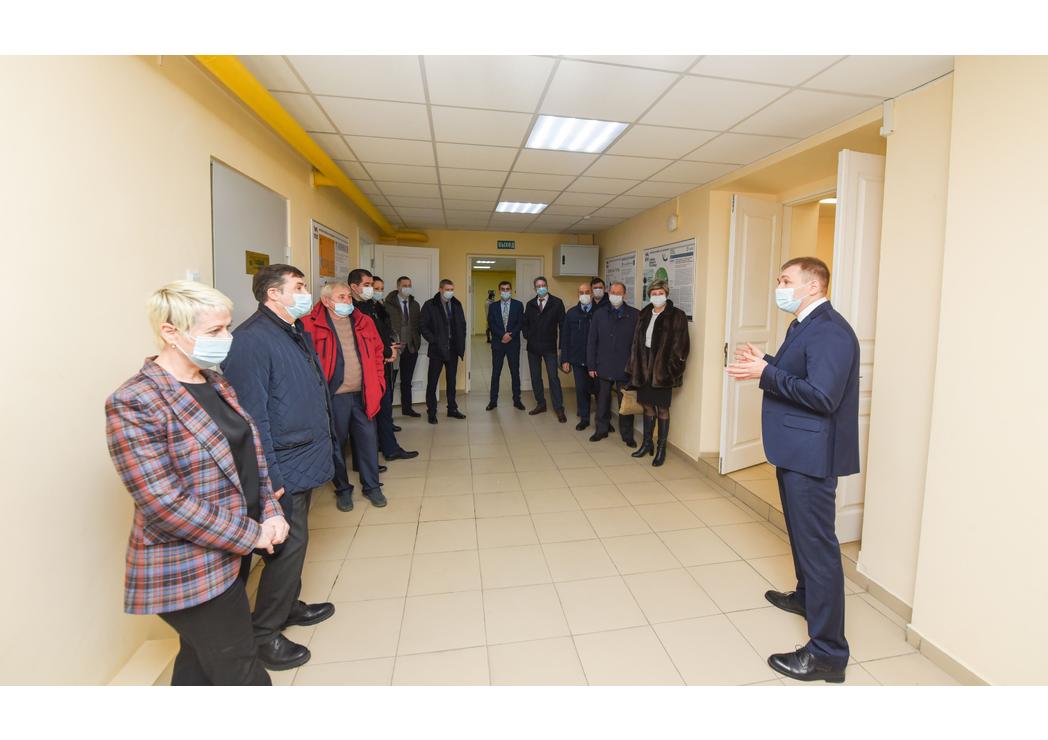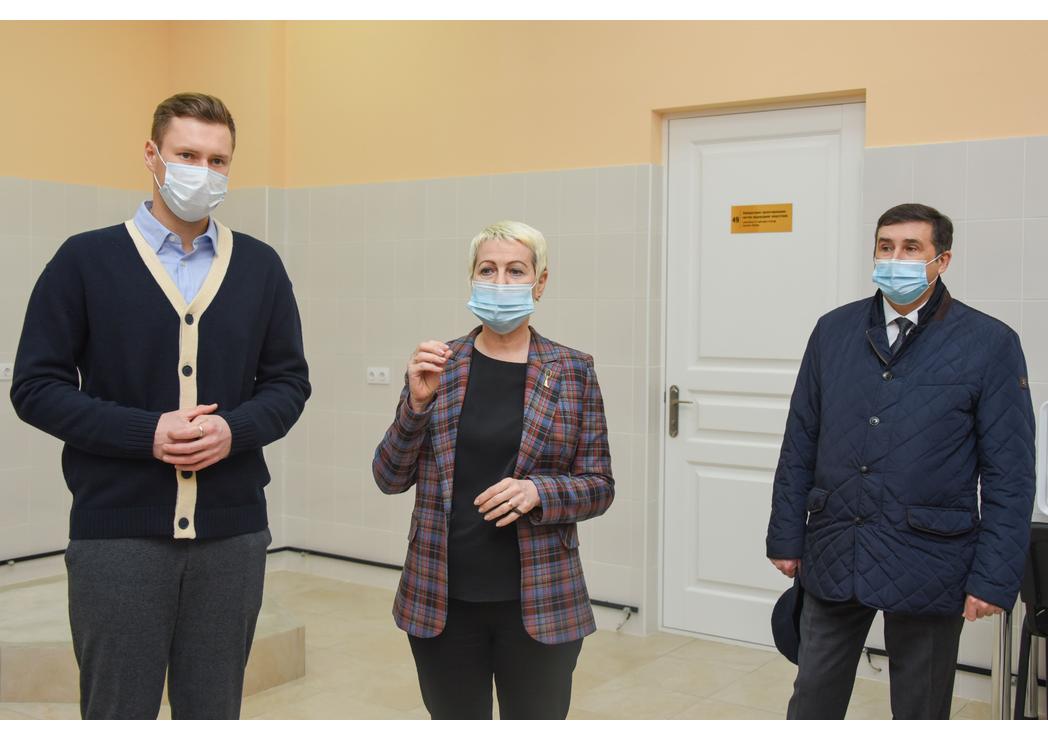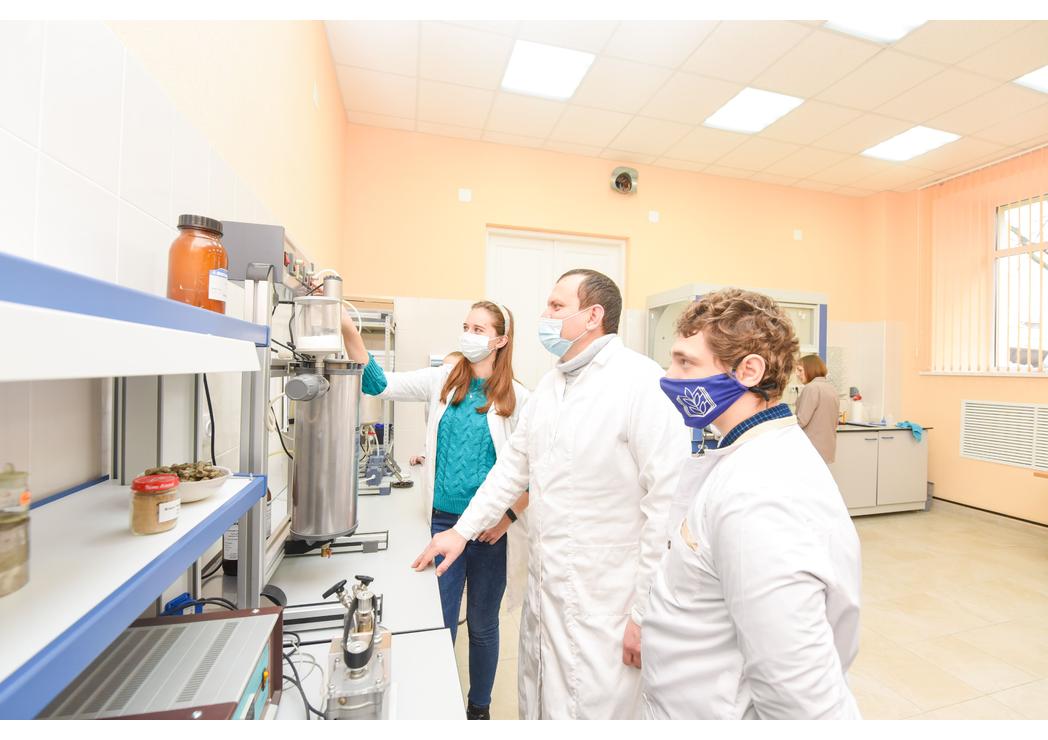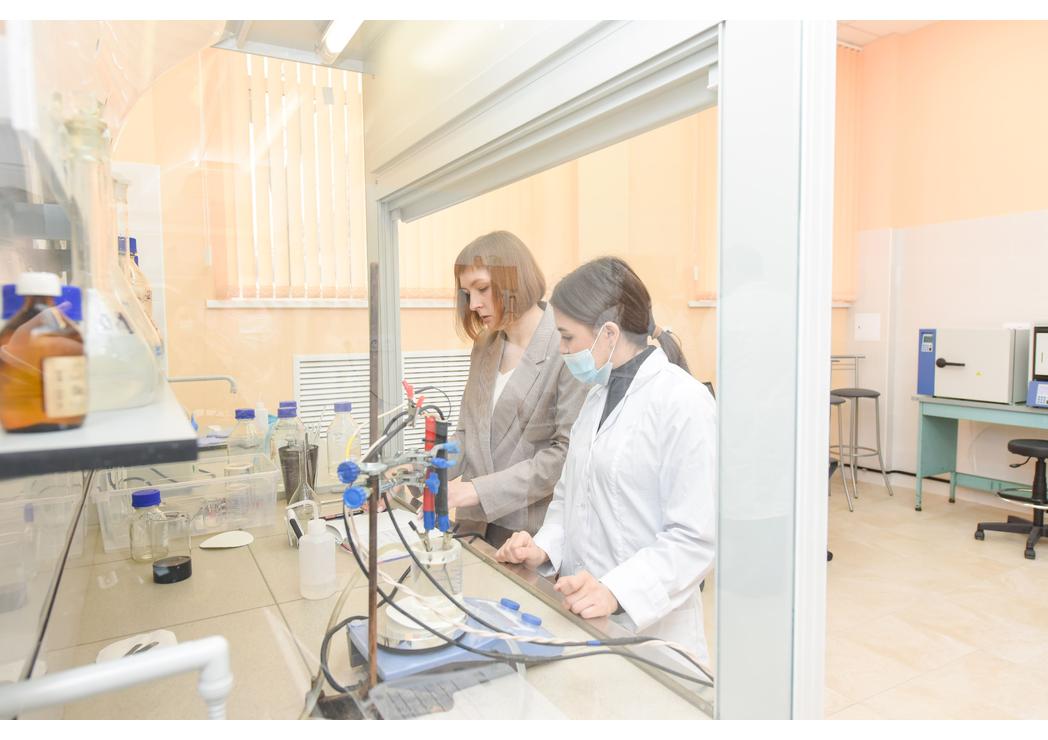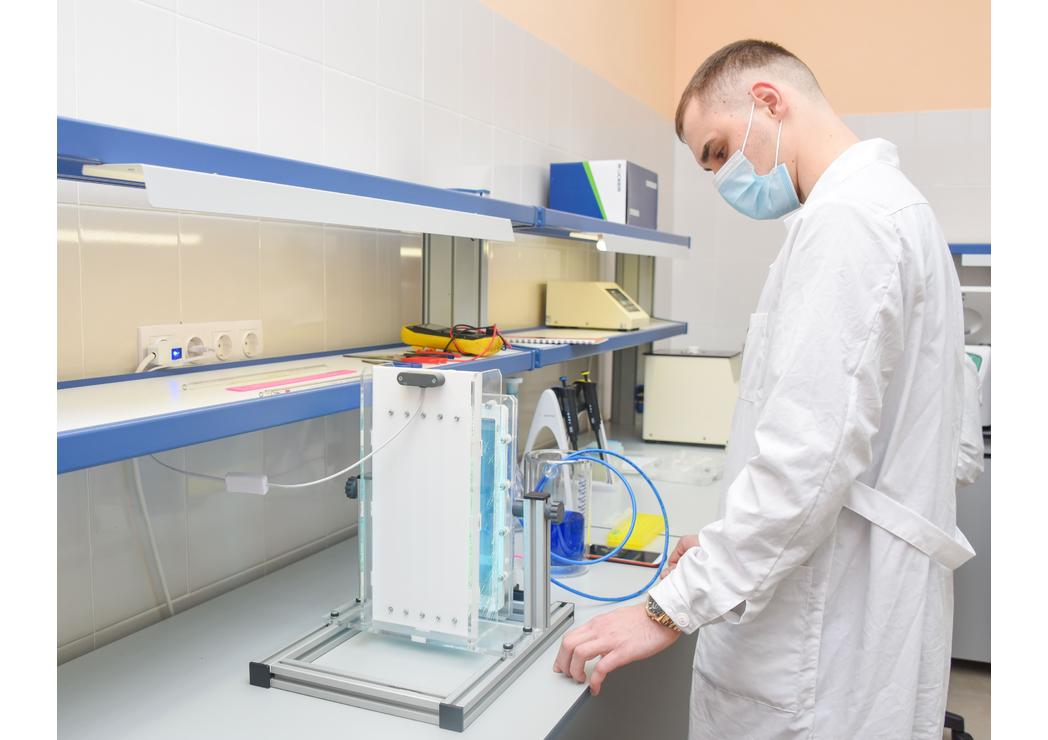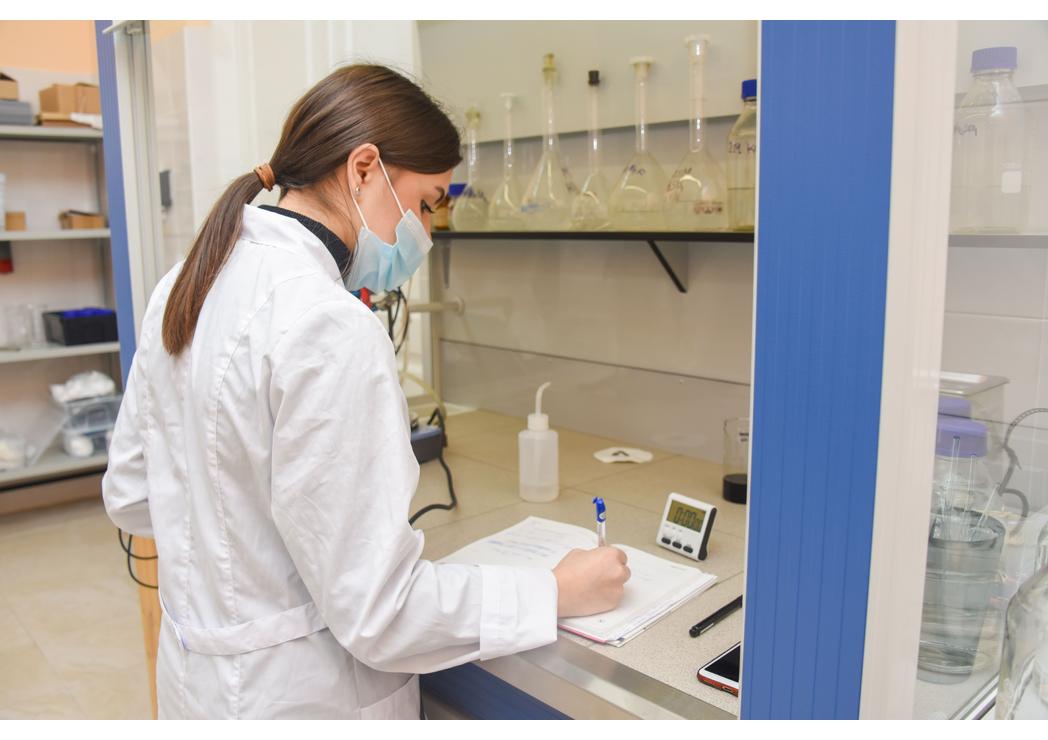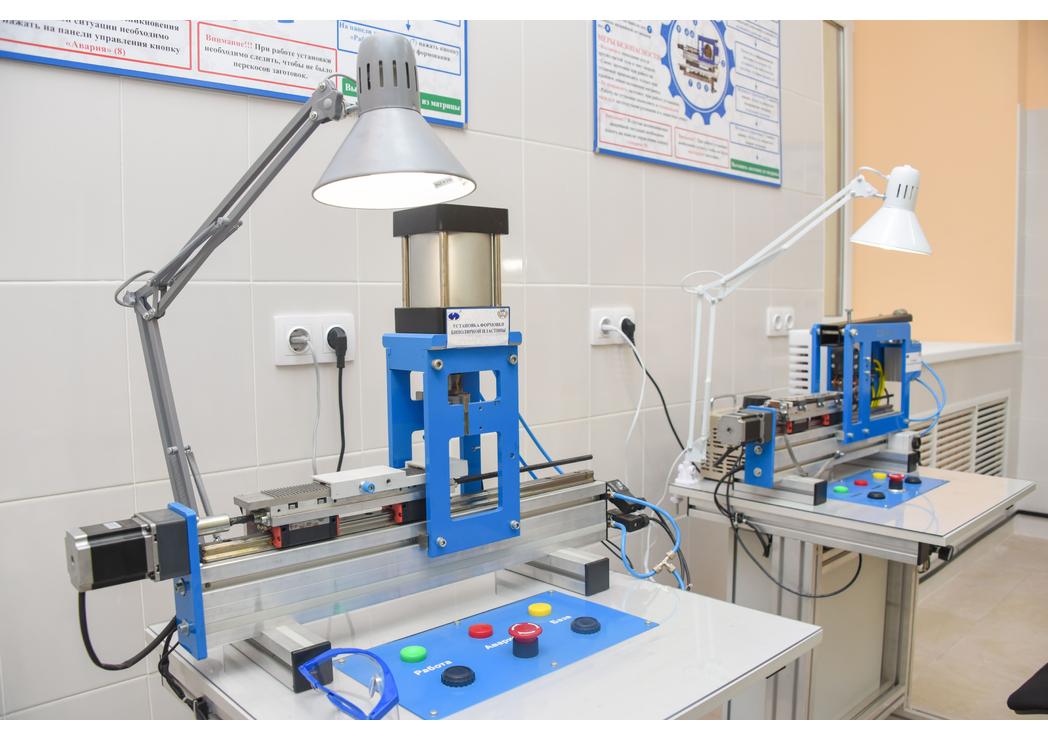On the Day of Russian Science, the Faculty of Technology invited polytechnics to visit. The Research Institute of Nanotechnology and New Materials, located in the basement of the TF, was visited by the rector of YURGPU (NPI) Yu.I. Razorenov, deans of faculties, directors of institutes and branches.
Many laboratories of the Research Institute opened their doors on this day and revealed the fascinating secrets of modern chemistry. Polytechnic chemists work at the forefront of science, developing fundamentally new technological solutions, cost-effective methods for producing chemical products, creating new materials with specific properties with a high chance of their commercialization.
Renovated rooms and bright spaces of newly formed laboratories, modern equipment, a lot of young faces, burning eyes of people in lab coats – such a picture greeted the guests.
The heads of the main research areas spoke about the essence of the work carried out in the laboratories. Director of the Research Institute of Nanotechnology and New Materials R.E. Yakovenko told about the research in the framework of a new project related to the processing of carbon dioxide.
- We have come to the creation of a new condenser that receives synthesis gas without CO2 and then hydrocarbon based on it, - Roman Evgenievich "warmed up" the interest of listeners. - What does it give? Allows you to process air into synthetic fuel. In the near future, it is planned to capture CO2 from flue gases and then produce a wide range of products – methanol, gasoline, kerosene, oils.
Roman Yakovenko noted that the Research Institute is developing a direction for the production of synthetic oils, the first sample of such a substance produced by polytechnics is now being tested. Work has begun on the synthesis and decomposition of ammonia on mobile installations, which are based on the idea of transporting "green" hydrogen.
The group, which works under the leadership of N.V. Smirnova, has been working for 15 years. Starting with three people, the team has grown to forty enthusiasts. Currently, the team is implementing eight grants of different levels in the amount of more than 20 million rubles. "We have a lot of students, and they are interested in it!" - Nina Vladimirovna rejoices.
The Doctor of Chemical Sciences spoke about the direction she oversees - the development of fuel cells and energy supply systems based on fuel cells, and graduate student Nikita Faddeev explained how and on what equipment these elements are tested in the laboratory of electrochemical research methods.
Work on photoelectrochemistry is conducted under the supervision of doctoral student Alexandra Kuriganova. This is a completely new direction, the essence of which is that under the influence of light, a chemical reaction occurs on the photocatalyst without attracting energy from the outside and energy is formed at the same time.
Within the framework of the national project "Science and Universities", the youth research laboratory of YURGPU (NPI) was established last year "New composite and functional materials with special properties". Most of the team, consisting of twenty–six people, are undergraduates and graduate students of our university, who face ambitious tasks related to the development of a new generation of composite and functional materials with special properties, including through deep processing of biomass.
The head of the laboratory, Candidate of Chemical Sciences Anna Ulyankina, spoke about the current and promising areas of laboratory research:
- We are conducting research within the framework of the global trend – the development of low-carbon technologies that use renewable energy sources. One of the directions is the use of plant waste, which is formed in large quantities in agriculture. From such waste we can obtain various biopolymers and composites based on them. Also, we can get other valuable products and fuels from the plant mass, which in their properties are not inferior to products made from traditionally used raw materials. Another actively developing direction is the creation of functional materials that are active in sunlight. Such materials can be used for various applications of low-carbon energy: water purification, carbon dioxide utilization, generation of pure "green" hydrogen. That is, multifunctional nanomaterials are obtained.
Separately, Anna Alexandrovna noted that she and her colleagues are researching the properties of composite materials created in the laboratory, comparing them with commercial analogues and this year they are going to use them to create a real car part. "This will first be a model for testing the operational properties of the material, and in the future we will scale this work," the head of the youth laboratory shared her plans.
At the end of the tour, the rector of the university, Yuri Ivanovich Razorenov, congratulated his colleagues on the holiday and expressed the hope that the positive experience of chemists will be adopted and disseminated at the faculties and institutes of the YURSPU (NPI).

